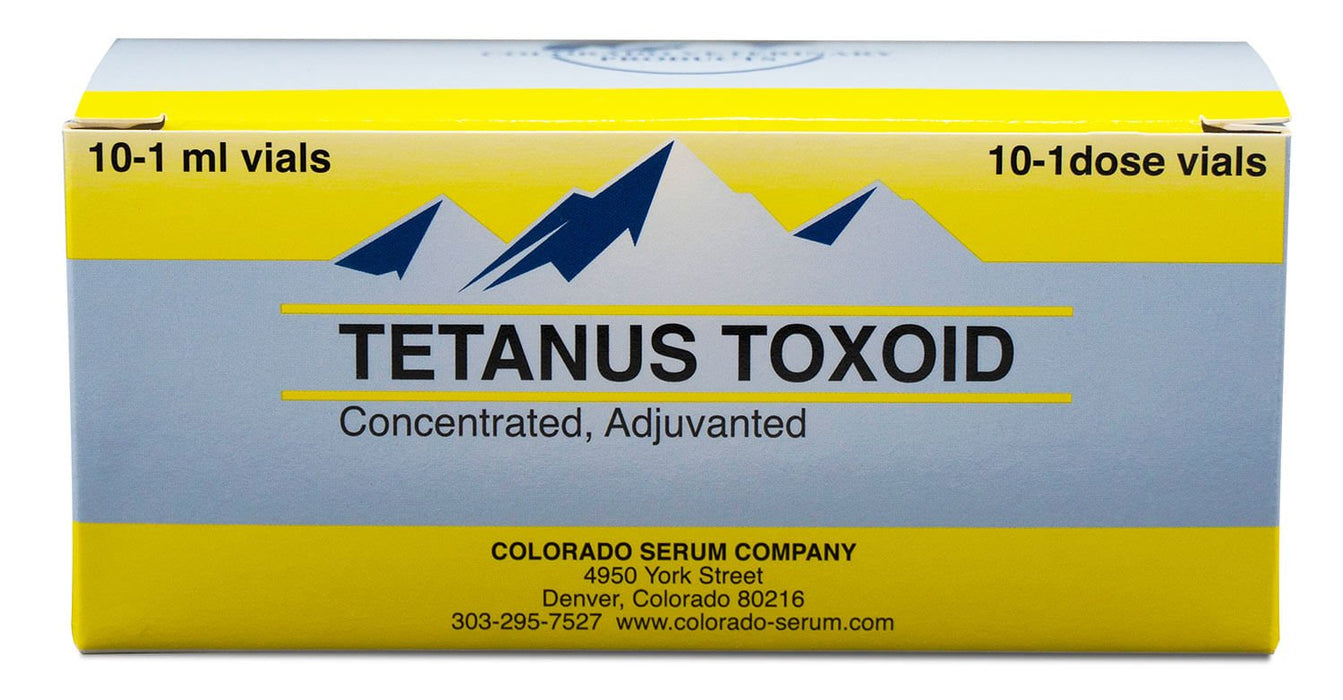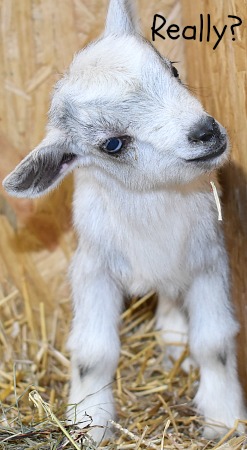Tetanus-Disbud & Banding
Tetanus is Deadly and Preventable!
Any wound can lead to tetanus infections.
-
Goats can contract tetanus through puncture wounds, disbudding, fights between bucks, dog bites, castration, tattooing, dehorning, and kidding difficulties (dystocia). The constant rubbing of the neck of a chained or tethered goat can produce skin lesions that result in tetanus.
-
Stiff limbs, muscles, and tail
-
Lockjaw or the jaws is clamped together
-
Drooling saliva from the mouth
-
Pricked ears
-
Unsteady gait
-
Changed voice
-
Erect ears and tails
-
Inability to eat or drink
-
Drooping eyelids
-
Prolapsed third eyelid across the eye
-
Convulsion
-
If not treated can lead to paralysis and death within just two days
-
Does should be vaccinated for CDT approximately 30 days prior to giving birth to provide protection to the kids through the first milk, or colostrum. If the doe has not been given a priming booster of two shots administered three to four weeks apart at some time in her life, the pre-kidding annual shot will not really be effective. This priming set of shots is usually given when the doe is a young kid but can be done at any age.
-
Kids should be vaccinated at 5 to 6 weeks of age and then given a booster three to four weeks later. Vaccination of kids from properly vaccinated does prior to 5 weeks of age may result in kids that are not protected and annual boosters may be ineffective.
-
Kids born to does with uncertain vaccination history or with questionable colostrum ingestion within the first 24 hours of birth should be vaccinated at 7 to 21 days of age and then given a booster three to four weeks later.
Information credit includes: https://goats.extension.org/goat-vaccination-program/
Kids being Disbudded or Banded-
must be vaccinated 6-24 hours before the surgery to prevent Tetanus Infection. Dosage for kids is .5 ml (one half of one ml). You may purchase 10-1 ml bottles from Jefferspet.com.
https://jefferspet.com/products/tetanus-toxoid-concentrate

Remember vaccinations such as Tetanus, may cause Anaphylactoid reactions in rare cases. Get the Antidote which is : Epinephrine. Have at least 1 injection of Antidote : Epinephrine on hand in case of Anaphylactoid reaction. This is a Vet. prescription item.
DO NOT DEPEND UPON KIDS' DAM HAVING BEEN VACCINATED WITH CD&T BEFORE KIDDING, THINKING THAT WILL COVER KIDS AT DISBUDDING OR BANDING! I have seen cases when the dams CD&T pre-kidding vaccination did not cover kids for Tetanus during banding or disbudding.



Powered by Boutique Store Builder . Web Design by Avalon Rose Design.


